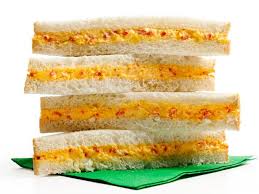A student of mine recently gave me some
plum wine which her mother made. I had
tried plum wine before, but I had never tried the alcohol-soaked plums
which are left after the drink is made.
My student gave me these two, and they tasted really odd, but nice.
She said that when she was a child her
mother also used to make the plum wine.
And her mother gave her the alcohol-soaked plums to eat. “My face became flushed and I got drowsy,”
she said. Don’t eat too many, or you’ll
be possessed by the plum spirits!
As I have been enjoying plums, I thought I
would retell a Native-American folk tale I remember reading, which concerns
plums.
Fox and the plums:
Fox was walking, deep in thought, when he
came to a pond. He looked into the pond
and saw some beautiful plums.
“Those plums look lovely,” he said to
himself. “I’ll stop thinking for a while
and enjoy eating these plums.”
So he dipped his head towards the water and
tried to bite off a plum. But, of
course, the plums he saw were just a reflection in the water. So the water got up his nose and Fox coughed
and spluttered. When he had recovered he
tried again, but the same thing happened and he coughed and spluttered
without tasting the plums. Again and
again he tried, but each time the water got into his nose.
Disheartened
and exhausted from trying in vain to get the plums, Fox lay down on the
bank next to the pond and fell asleep.
While he was asleep, some ants came along and, thinking that Fox was
dead, ate out one of his eyes. The eye
they ate happened to be the one on the side nearest the pond. So when Fox awoke he could not see the plums.
Fox walked away, looking for the plums. Eventually he walked in a circle. He came back to the pond. But this time he looked up and saw the plum
tree.
Fox really wanted to eat these plums since
he had made such an effort over them. So
he pulled out his one remaining eye and threw it at the plums hanging above him
in order to make a plum fall from the tree.
Whether or not the eye hit the plum and
made it fall I do not know. But Fox was
now blind and helpless. And the ants
came again and climbed into Fox’s empty eye-sockets, and killed him, and
enjoyed a fine meal.
*
I’m not sure what the moral of that story
is. If the plums are alcohol-soaked,
perhaps the moral is: Enjoy the tasty plums if you can, but be careful not to
become too attached to them. Alcohol
will make your face flushed, and make you drowsy, and make you stop thinking,
and make you sacrifice more and more to get it.
That’s quite a dark thought. I had better have a nice glass of plum wine
to calm myself down.
Vocabulary:
(alcohol-)soaked – of a solid object, such
as a tissue or cloth, to be filled with a liquid, such as alcohol
flushed – of skin, to be red; for the blood
to be visible just beneath the skin
drowsy – sleepy, especially after drinking
alcohol or taking medicine
spirits – 1. Strong alcohol – 2. ghosts
to splutter – to make a series of violent
choking or spitting sounds
disheartened – disappointed and without
confidence
in vain – unsuccessfully; without getting a
positive result
happened to be – was by chance



